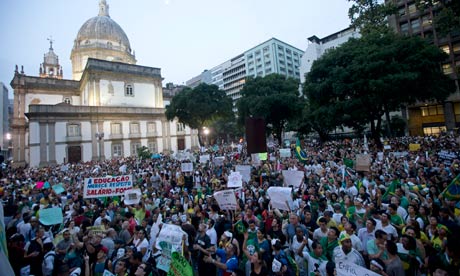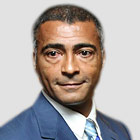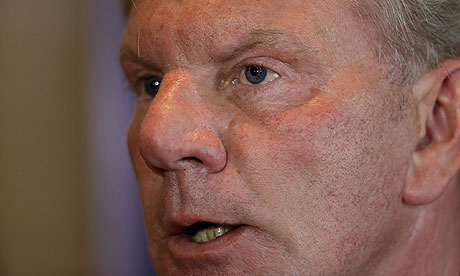This mega event can only deepen Brazil's problems. The only beneficiary will be Fifa

People gather for an anti-government protest in Rio. ‘The people on the street are crying out for an end to corruption and against the waste of public money, both of which are so common in our Brazil.’ Photograph: Silvia Izquierdo/AP
Over the last week, the Confederations Cup, which is taking place in Brazil, has been sharing space in the news with frequent and timely protests on the streets, most of them with the intention of forcing the Brazilian government into a new economic direction.
As five times world champion, Brazil's love of football has long been blamed for distracting the population from its social problems. It is ironic, therefore, that it was the country's preparation to host the World Cup that has mobilised Brazilians. Raising flags with no party colour, the people on the street are crying out for an end to corruption and against the waste of public money, both of which are sadly so common in our Brazil.
These protests will strengthen our democratic culture. It is the voice from the streets, for one, that will lead to the strengthening of our judiciary. And it couldn't come at a more timely moment: with the legislation currently weak, corruption is rife – and those who steal from the public are let off the hook. As a congressman for the Brazilian Socialist party (PSB), I am comfortable being so critical of the state of the law in my country, because for a long time I have not shied away from pointing out the abuses that take place around here.
When Brazil won the bid to host the World Cup, other politicians were in charge of the country, and our political reality was different. I supported the bid because it promised to generate employment and income, promote tourism and strengthen the country's image.
Since then, Brazil has been affected by the turbulence in the world economy just like any other country. Government plans were redrafted, public investment was cut – yet the commitments signed with all-powerful Fifa stayed the same. Investment in cities hosting World Cup matches were prioritised over the people's needs. Money was channelled predominantly towards sport projects, at the expense of health, education and safety. The lack of investment in education, for example, contributed to an increase in people with no occupation, leading to more unemployment and lack of security in the big cities.
In many cities, conditions in schools are deplorable. Teachers are poorly paid and demoralised, and Brazil is now ranked second last on Pearson's education quality index, out of 40 countries. Worse: one in four students who start out in basic education leave school before they complete the last grade, according to the UN Development Programme's 2012 development report.
Brazil's public health situation is worrying, too. Those who have to rely on public hospitals often end up with their sickness aggravated by the lack of professional treatment. There have been press reports about people dying while on hospital waiting lists, without receiving even basic treatment. Who is responsible for this criminal irresponsibility?
Problems with education, health and safety were inherited by previous governments, making the country socially vulnerable, in spite of what the economy index may tell you. Brazil is now one of the 10 major world powers, but how does that matter to the people if the social loss is so evident?
Under the government of former president Luiz Inácio Lula da Silva, the World Cup proposal was to have an event in which there was transparency on public spending. The opposite has occurred. An initial budget of R$25.5bn ($11.4bn) for stadiums, urban transportation, improvements in ports and airports, has risen to R$28bn, according to the sports ministry's executive secretary, Luiz Fernandes – almost three times the cost of Germany's World Cup in 2006. Why are we organising the most expensive World Cup in history, without any of the benefits to the community we were promised?
Plans to improve traffic around host cities have turned out to be chaotic, too; only three have stuck to their budgets and deadlines. Numbers like these have made the public angry and fuelled popular protests, in a bid to reverse the logic of a system that privileges money over social matters.
Meanwhile, Fifa has announced that it will make a R$4bn profit from Brazil's World Cup, tax-free. Its easy profit contrasts with the total lack of an effective legacy. President Dilma Rousseff repeats what former president Lula said, reassuring us that we'll "host the best World Cup of all time". I don't agree, because we have failed on what matters most: a legacy to make us proud. Only Fifa is profiting, and this is one more good reason to go to the streets and protest.
I never thought the World Cup would solve all of our problems, but now my fear is that this mega event will only deepen the problems we already have.


